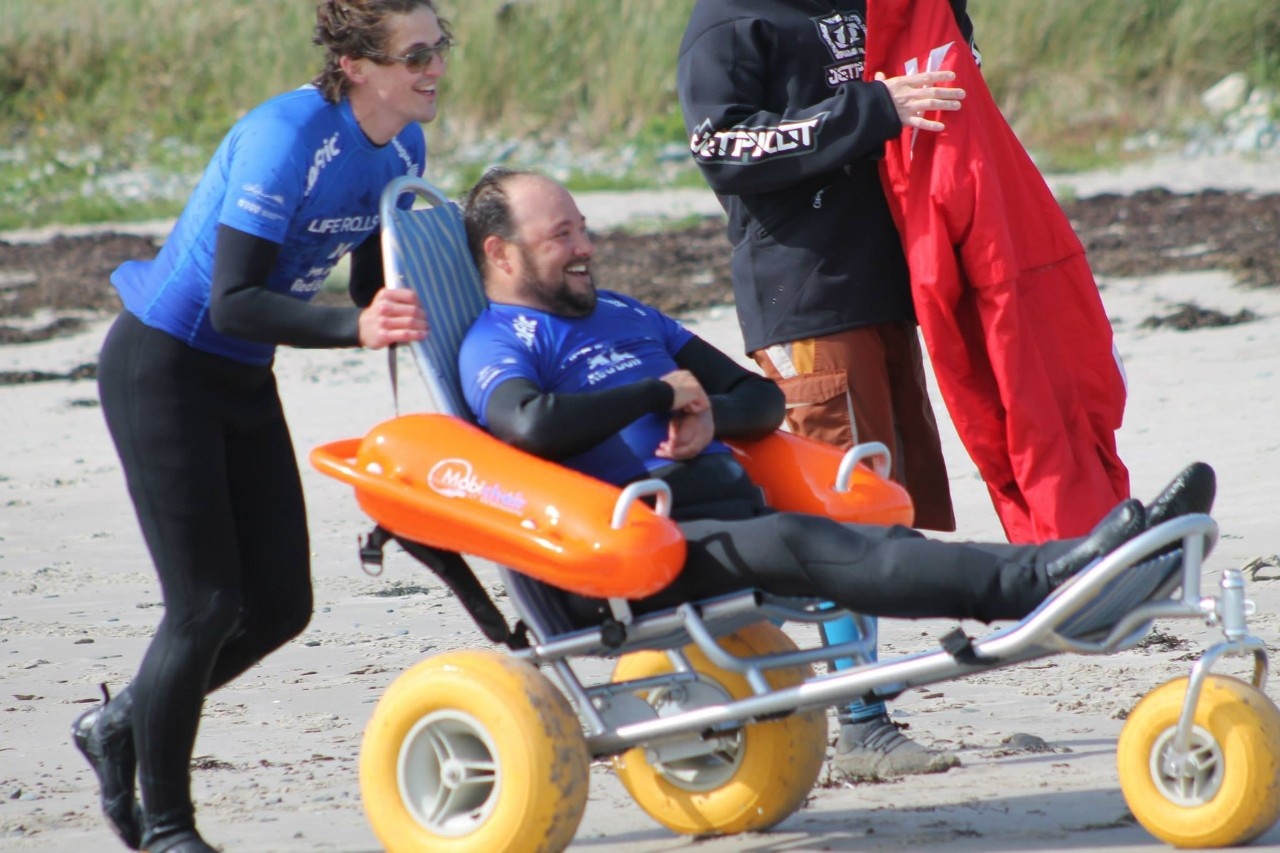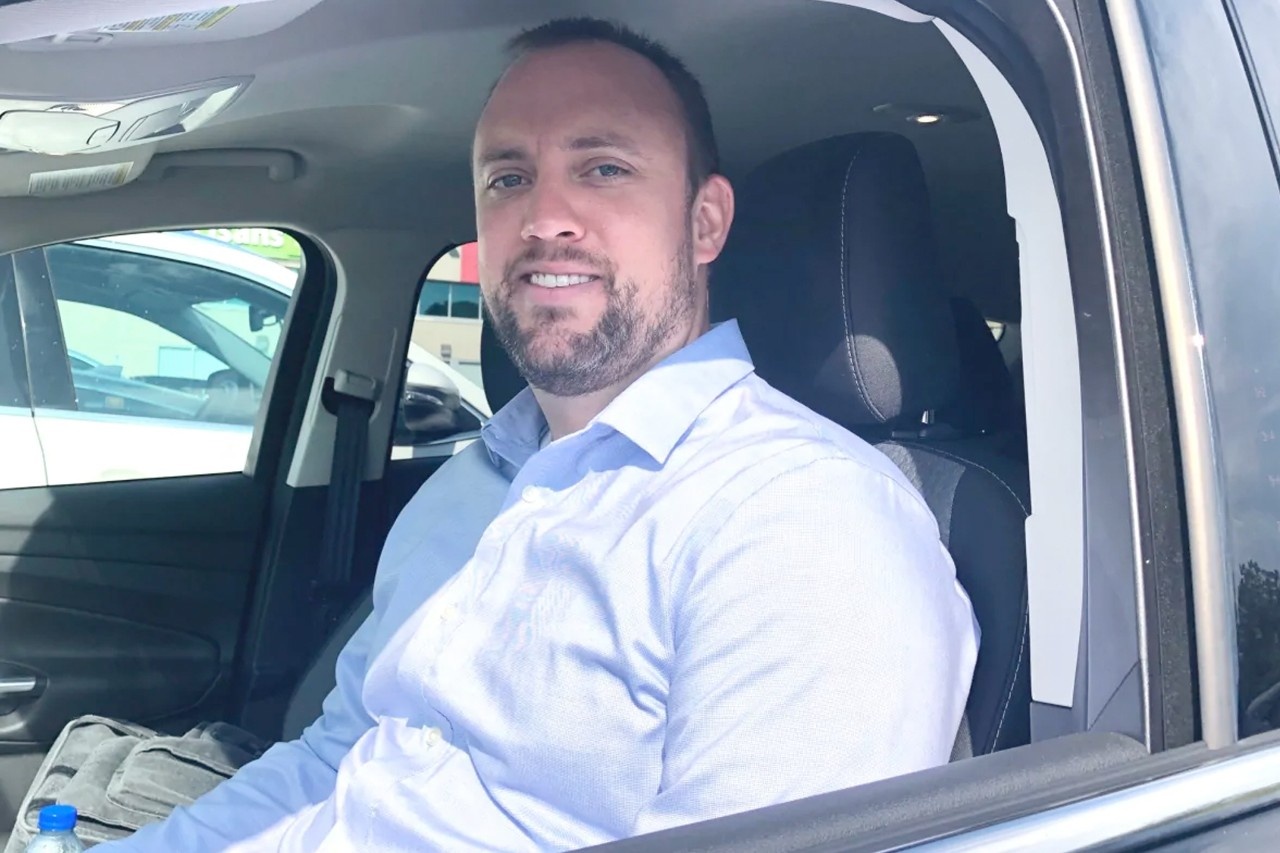Where are they now?
In the 2014 spring issue of PT Matters, Class of 2009 graduates Stephen Richey and Mark MacKenzie were featured in the Alumni Profile. During the article interview they both shared their 5 year physiotherapy career plans with our readers. Now, just over 5 years later, we are following up with them to see just how their plans unfolded.

Ralph Waldo Emerson~ “It is one of the most beautiful compensations of life, that no man can sincerely try to help another without helping himself.”

Success does not come easy, but if you work hard for something you believe in and that brings you happiness, you'll always end up being successful."
The 5-year physiotherapy plan in 2014.
Mark (answer): I enjoy being a clinician but I also like working with students. In five years, I see myself having maintained a caseload of a neuro population at the Rehab Centre and being more involved at the School. I'd also like to see a link between research/academia and the clinical world. If I can figure out a way to potentially deliver curriculum in a more practical way that would be my ideal five year plan.
Stephen (answer): In time I would like to grow AtHomeRehab into a multidisciplinary business. Ideally, adding more therapists to offer a full range of services for people. I'd like it to be a hub for information on home service and for people who are under serviced. A place for people to call and arrange for home physio, a nurse, speech pathology or occupational therapy if their loved one, relative or spouse was just diagnosed with a stroke. Offering a range of services in one location makes it easier for families.
Did you meet your 5-year goal?
Mark (answer): Looking back, I was working full-time as a clinician at the NS Rehab Centre and was fortunate to be doing some clinical instruction of students in the Dal PT program. My first 5 years of practice was my most rewarding and enjoyable, to date. I had a passion for knowledge translation – bringing the research to the clinical world. I had a goal of continuing on that journey and spending more time working at Dalhousie. It was my move to PEI that played the biggest change to my initial 5 year goal.
Stephen (answer): No, I didn't actually, not even close (haha)
Did you veer from your plan and if so why?
Mark (answer): I live in Charlottetown, PEI with my wife Aimee, and our two children, Adrienne (4) and David (1). My passion for changing the way we teach and practice physiotherapy has not faded, but my direct involvement with Dalhousie has not continued – simply due to logistics and geographic separation.
Stephen (answer): My plan actually changed shortly after the 2014 interview for the PT matters newsletter. For a long time I believed I wanted to be a business owner and entrepreneur but as time went on, the work requirements and entrepreneur "lifestyle" wore me down. I was finding myself working very long hours and missing out on social and family time because of work.
Eventually I had an opportunity to make a career change. While that change didn't pan out, it made me realize that, although I wanted to continue doing home visits, I no longer wanted to be self-employed. As a result, I merged my business with a larger group of clinics.
Did your focus change because of something you experienced along your career path?
Mark (answer): My career focus changed, to some degree, based on where I decided to settle down. The opportunities for physiotherapist in PEI were quite different from Nova Scotia or the other provinces. The public health care system had no physiotherapists in senior management positions; there was low staffing compliments on inpatient units, nursing homes and home care; physiotherapists were not involved in orthopaedic assessment/surgical screening clinics; physiotherapist were not working in publicly funded collaborative primary care settings and there was almost no access to publicly funded physiotherapy service for children. The perception of physiotherapy was so minimal and dated, it felt like I stepped back in time. Essentially, I would say my career focus changed based on the physiotherapy needs of the province.
Stephen (answer): As time went on I was finding myself enjoying the business side less and less. The business world is a difficult place to merge the values and ethics of health professionals. At the end of the day businesses need to make money and put that before all else. As a result, I found myself working as much as possible, which was not mentally or physically healthy. This realization, along with some other significant life changes, made me reflect on what actually made me happy instead of what I thought I wanted or what I thought was "cool".
Did you change?
Mark (answer): I don’t believe my values or vision changed since my 2014 interview. I still have a passion for the student experience, and for clinicians being the best healthcare providers they can be, but since then, I made a decision to put all of my energy into advocacy efforts.
Stephen answer: I have definitely changed over the years since my last interview. My goals are no longer about personal success but rather about making an impact in our profession. I have turned my focus towards physiotherapy education and policy change. This has led to me being happier overall and receiving far more satisfaction and value from my job than when I was self-employed. I've realized that you can't force success. Instead, I've focused on working as hard as I can and letting success come to me as a result.
Are you still giving back? and if so how? and why is it still/more important?
Mark (answer): For me, being involved in associations, colleges, academia, or other leadership roles in your profession gives you a voice that allows you to create the opportunity to make positive change.
As such, in 2015, I joined the PEI Physiotherapy Association executive as treasurer, and have been in the role of president since 2018. I also took on a position with the Canadian Alliance of Physiotherapy Regulators, creating content for the national licensing exam. That has allowed me to network with other educators and clinicians across the country, and gain insight into the rationale, structure and scoring of the exam, as well as trending issues affecting the profession.
Most recently, I joined our regulatory college in the role of treasurer, which has provided a great deal of education on regulatory and licensing issues, as well as the experience of transitioning from the Physiotherapy Act to a new Regulated Health Professions Act. It involves writing new bylaws, regulations, practice standards, and policies. These are the documents that will guide how physiotherapy is practiced on PEI for decades to come.
To solve a problem, you need to know exactly what the problem is. To make positive change in your profession - know the facts, know the laws, and know who to talk to to get a better understanding of why it is the way it is. Getting involved in the profession's organizations will ensure your voice is properly informed, which in turn will give it the meaning and impact necessary for making positive change. Being a voice for positive change is, at least for me, is one of the best ways of giving back.
Stephen (answer): I'd like to think I'm still giving back. I spend a lot of time working as a clinician but also I have dedicated a lot of my time to the physiotherapy school as a lecturer and lab instructor. Outside of my paid work, I volunteer my time as the NSPA President, on the Nova Scotia Physiotherapy Advisory Group, and as a item generator for CAPR. It is important to me that every professional give back to the profession that has provided them with an ability to earn a living. I feel that physiotherapy has given me so much that the least I can do is try my best to give back.
Specifically in terms of the school, I don't feel that I give as much as I get. Spending time with the students provides me with a lot of positive energy and excitement to see what the future of the profession looks like. If I can help in their education by providing some guidance and expertise then its an added bonus for me.
What do you see coming down the road in the next 5 years for yourself and the physiotherapy community?
Mark (answer): The next 5 years for me personally my priority is to get my children safely to ages 9 and 6, and stay married. Volunteering provides a lot of satisfaction, but it also competes with other life priorities ;) I’m fortunate my wife supports my passion for the physiotherapy profession.
For the physiotherapy community, I think the biggest issues of the next 5 years remain Access and Quality. Many Canadians still have no access to physiotherapy services. The unemployment rate is near 0%, and demand continues to grow. Those without access often belong to a vulnerable part of the population. In order to develop a strategy to address the physiotherapy needs of Canadians, we need to ask some tough questions like: Are we teaching students and clinicians to provide the highest quality, individualized care plan to their patients? Are we providing tools to improve critical thinking? Are we incorporating what we now know about pain science into our curriculum and into practice? Are we providing appropriate mentorship to clinicians throughout their career? Are other professions positioning themselves more strategically to provide care that physiotherapists are more educated / suited to provide?
The way I see it, physiotherapy is the greatest health profession out there. We experience rewards from making significant differences at the individual level, the community level, and the health systems level. We could do a dozen different positions during our career, and never feel bored. Our opportunities are endless. We are all very lucky to be doing what we love and if we work together as a profession I believe we can answer the hards questions to provide the best care for those who require our services.
Stephen (answer): I'm hoping to become more involved with the Physiotherapy School and with physiotherapy education as a whole. I have been taking a Master's of Education and I have learned so much that I am hoping to share as much of this information as possible. I also hope to continue my involvement with the Physiotherapy Association and beyond. As a profession we are at an important time in our history as health care is rapidly changing. With opportunities with advanced practice, and expanding our scope and role within the public health care system, I hope to continue being involved and keep trying to push our profession forward.
What is something fun about yourself that not everyone would know but would find interesting?
Mark (answer): Not everyone knows that in 2013 I got on the Accessibility Advisory Committee with the city of Halifax. Learning about accessibility legislation, building code, general construction principles has given me another set of tools to help my patients. If I had the free time, I would complete an architectural technology program, just for kicks.
Stephen answer: Well a big change to my next 5 year plan is that my fiance and I are expecting a baby in July. No doubt my life will look much different in 2025!
